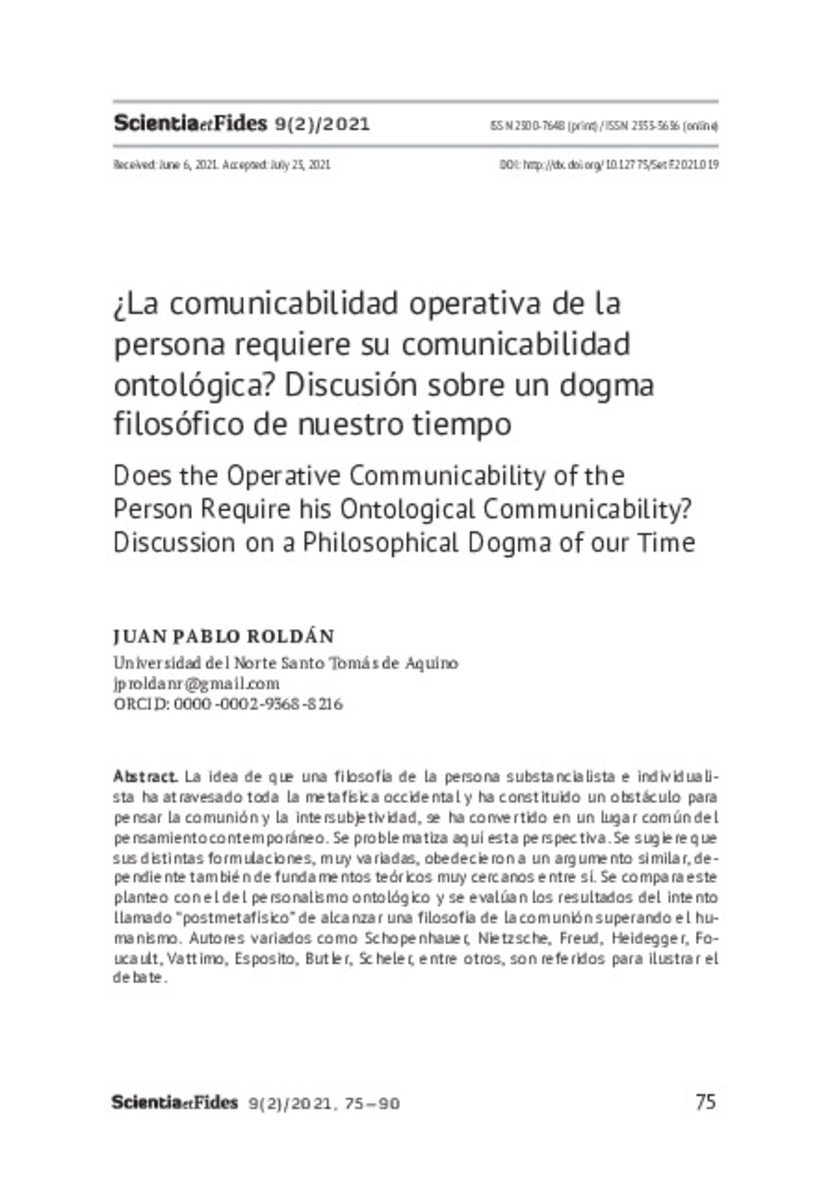¿La comunicabilidad operativa de la persona requiere su comunicabilidad ontológica? Discusión sobre un dogma filosófico de nuestro tiempo
Other Titles:
Does the Operative Communicability of the Person Require his Ontological Communicability? Discussion on aPhilosophical Dogma of our Time
Keywords:
persona
substancia
intersubjetividad
metafísica
postmetafísica
fenomenología
person
substance
intersubjectivity
metaphysics
postmetaphysics
phenomenology
Publisher:
Uniwersytet Mikołaja Kopernika
Citation:
Roldán, J.P. (Juan Pablo). "¿La comunicabilidad operativa de la persona requiere su comunicabilidad ontológica? Discusión sobre un dogma filosófico de nuestro tiempo". Scientia et Fides. 9 (2), 2021, 75 - 90
Statistics and impact
0 citas en

Items in Dadun are protected by copyright, with all rights reserved, unless otherwise indicated.








